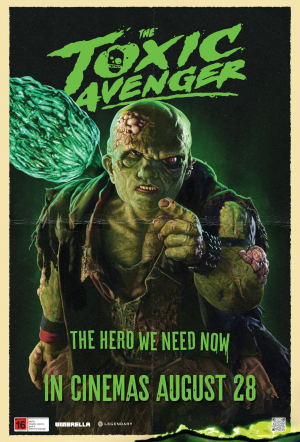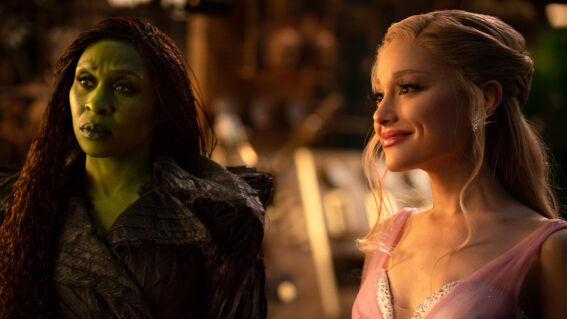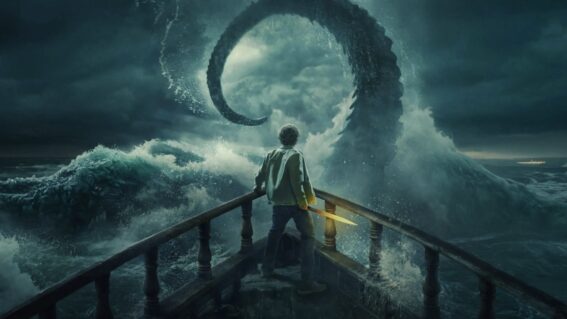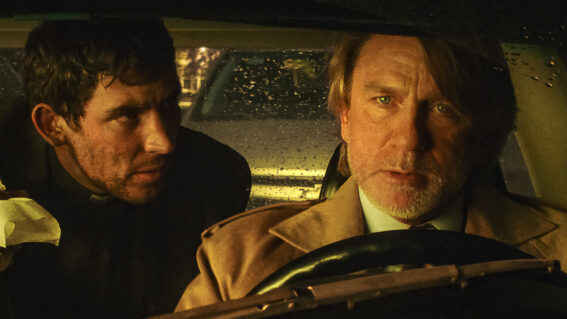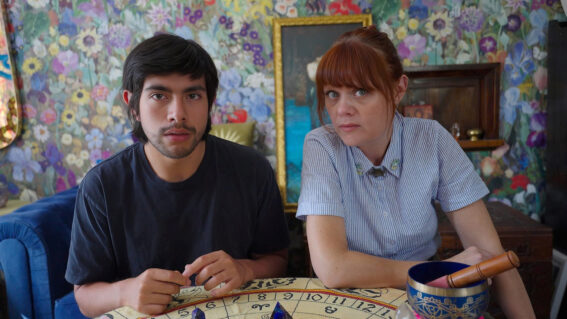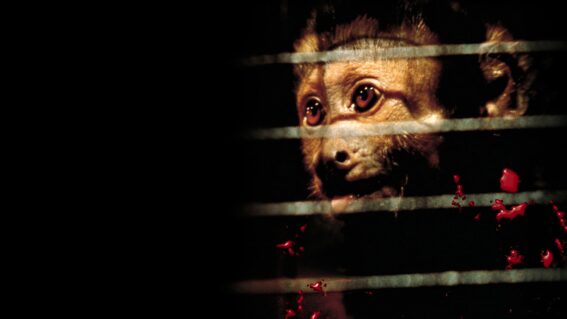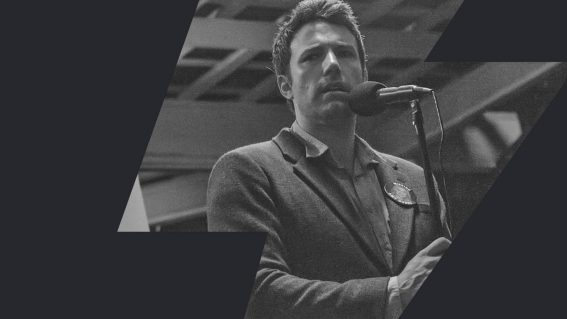“It’s a guy with a mop and toxic waste gives him muscles”: The Toxic Avenger is back
Macon Blair chats with Flicks about his new take on the beloved cult classic.
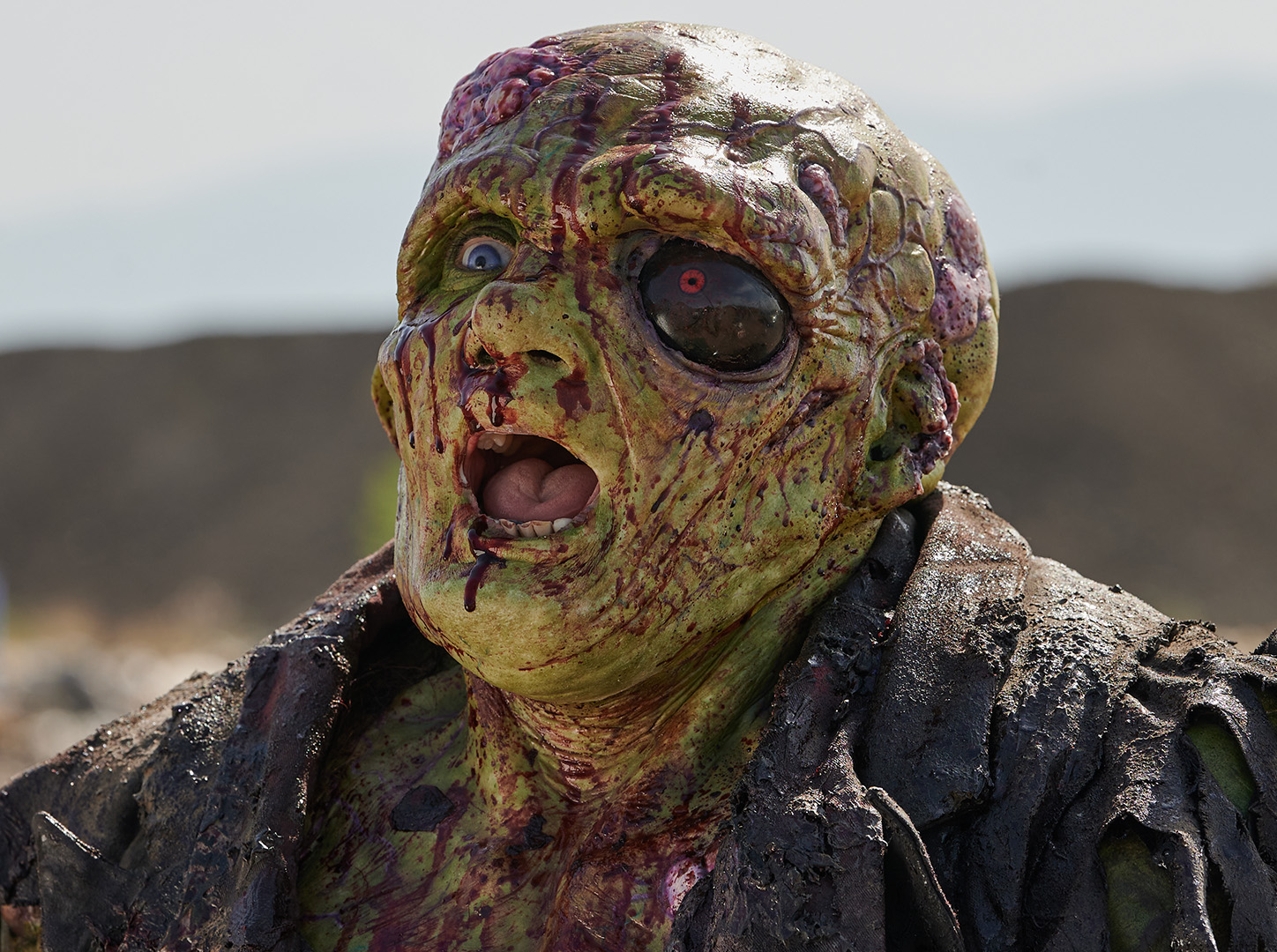
“A big part of this one, I would say, is like a dude with a mop and a tutu, and you’re instantly like, ‘What the fuck is this? I’ve gotta watch this one.’”
That’s Macon Blair, director of the new The Toxic Avenger, reminiscing with me about the allure of the 1984 original, a movie whose cover loomed large over us both as kids in video stores growing up. It was probably years before I actually saw it, sometime in my early teens, but the original was a perfect mix of outrageous title, artwork and restricted sticker. Something from the forbidden zone (no, not that bit through the video store saloon doors).
Blair watched it when he was 12 and like a lot of things, it came from a friend’s older brother. “He was like, you gotta watch this one. And he kind of passed it down to us and, and that’s how I came across it.”
1984’s The Toxic Avenger is credited with establishing the formula for indie film production company and distributor Troma, and kicked off a franchise of its own that made it all the way to a kids’ cartoon series, of all things (not bad for an R-rated indie gross-out pic). In the 1984 original, scrawny janitor Melvin is viciously pranked by punks, and falls into a drum of toxic waste, transforming into a super-strong, mop-wielding mutant vigilante.
There was a lot to discover in crossing the threshold of this movie. Not only this outrageous world populated by even more outrageous characters, but low-budget filmmaking and production values, things that were quite odd as a much younger person to see for the first time.
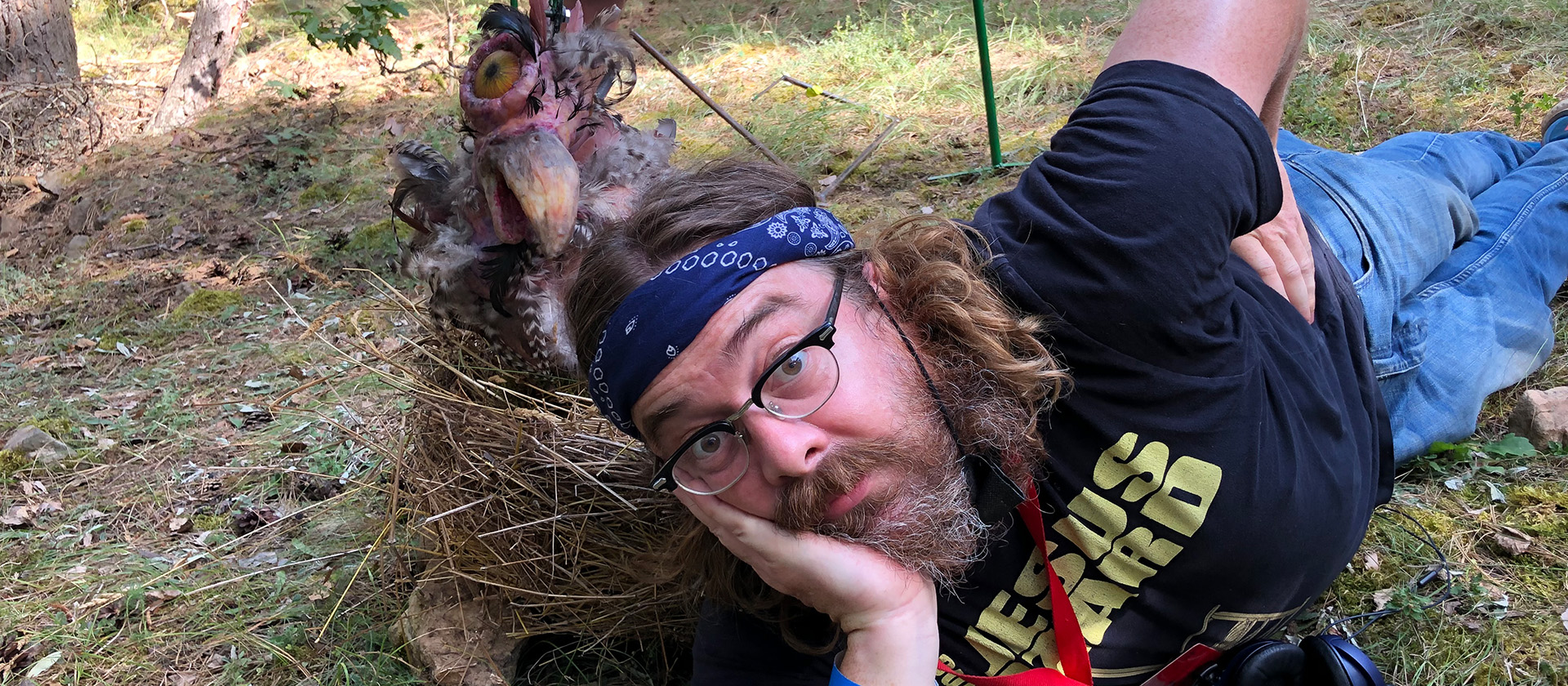
Writer-director Macon Blair and… friend?
Blair discovered movies like these at an age where prior to that, all the movies he was watching were big budget. Things like Star Wars or Jaws. All of a sudden, this new genre of movies made an impression. “I couldn’t articulate why exactly. I didn’t have the filmmaking knowledge at that time to understand techniques or anything like that, but I had the impression that they were handmade, that they were just made by people that got a camera and went and whipped it up amongst themselves with their own resources.”
That aspect of it was really encouraging to him and his friends, as video cameras were becoming increasingly available: “Suddenly it seemed very possible to make your own movies in your backyard with your buddies. That was a big part of that.”
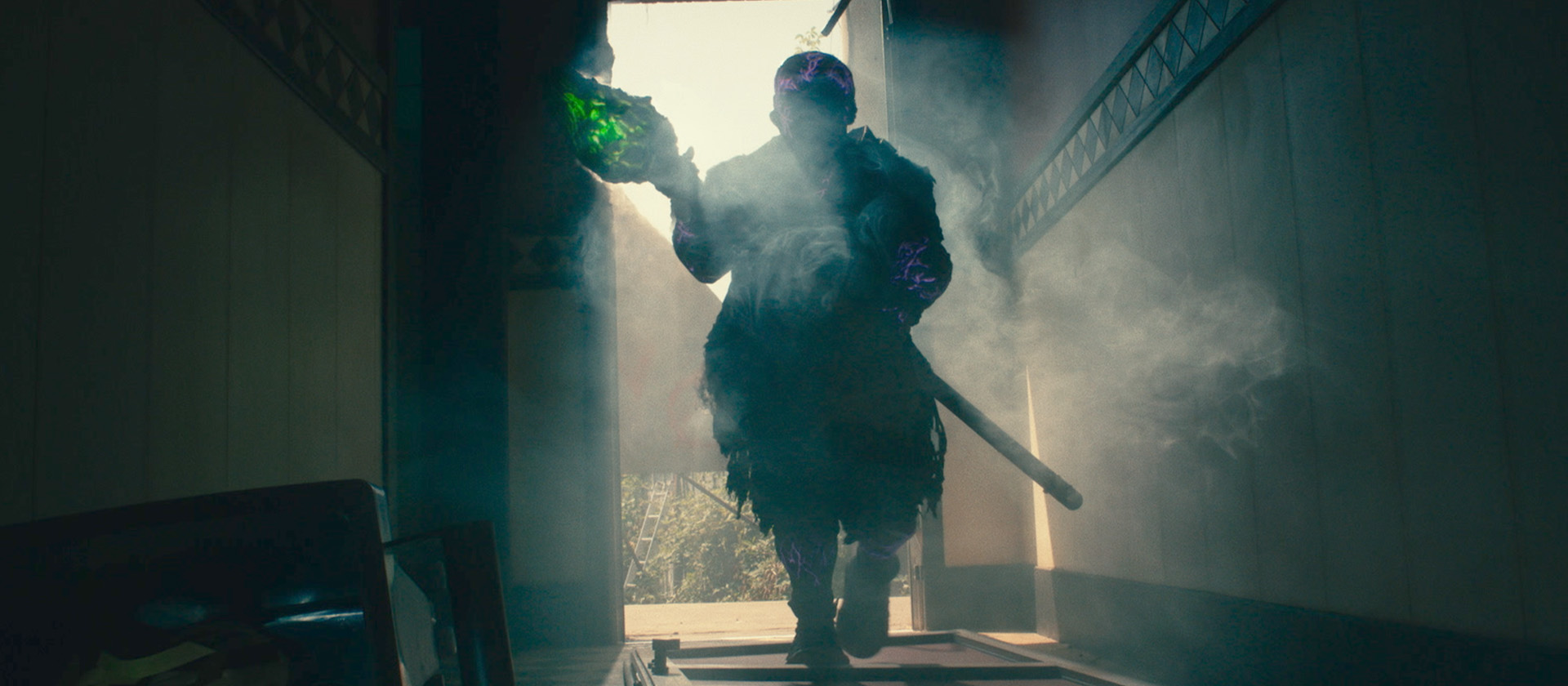
Not that it ever occurred to Blair that, decades later, he would have the chance to literally make his own The Toxic Avenger. In 2019, Legendary had worked out the rights with Troma to do a new version, were soliciting writers, and he was invited to pitch.
“I just kind of gave my honest assessment,” Blair recalls. “I didn’t really have much of a story, but I felt let’s not stray too far from the tone of the original, even if we make up a new character, which I suggested and give him a new sort of life and emotional thing to solve.”
Important to Blair was keeping the tone of it intact, keeping a handmade sort of quality, keeping it silly, and not taking itself too seriously. Like the original, it should be a person in a suit, as opposed to a computer effect. Blair’s pitch, more about tone and texture rather than story, was warmly received by the executive he was meeting with—as a fan himself of the original Toxie, he saw they were speaking the same language.
What was a pitch for a writing job eventually became a directing job, too. For Blair, when it came together, he says it felt like a return to those days of making movies with his friends in the backyard, just on a larger scale.
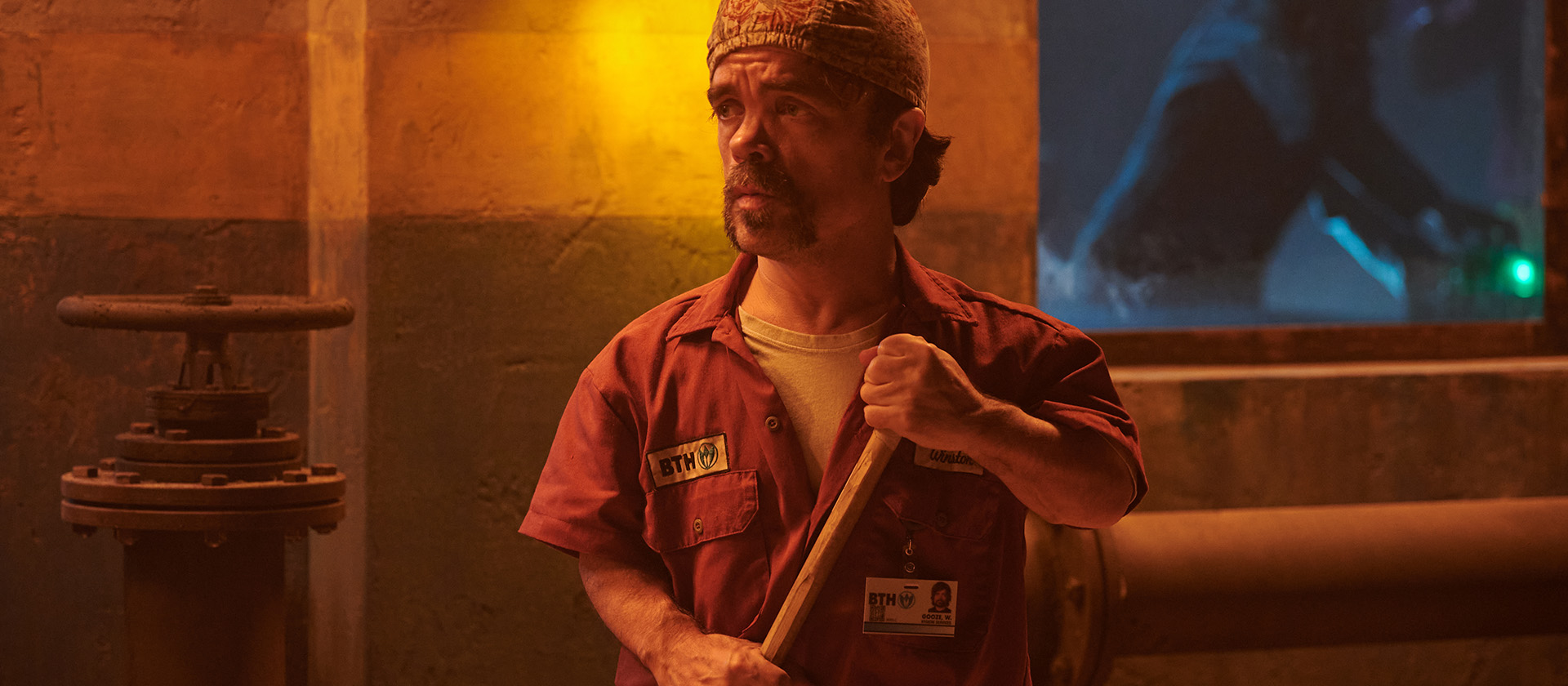
Blair’s version again sees a janitor transformed by toxic waste, but this time he’s widower Winston Gooze, played by Peter Dinklage, trying to navigate life with his stepson.” If you look at the original, there’s Mark Trogl, who plays Melvin, and you get on his side very quickly,” Blair says. “I felt like we needed our own version of that, somebody that the audience could get on board with very, very quickly before he turns into the monster.”
Blair shares that Dinklage was a fan of the original as well: “He didn’t need any translation of reading the script and being like, ‘Is this ridiculous? Deliberately or accidentally?’”
“He got that and was interested in that,” Blair continues. “He was game for the ridiculousness of it.” And at the same time, Blair says, he brought real heart to a character in what’s a very preposterous movie: “It’s a guy with a mop and toxic waste gives him muscles.”
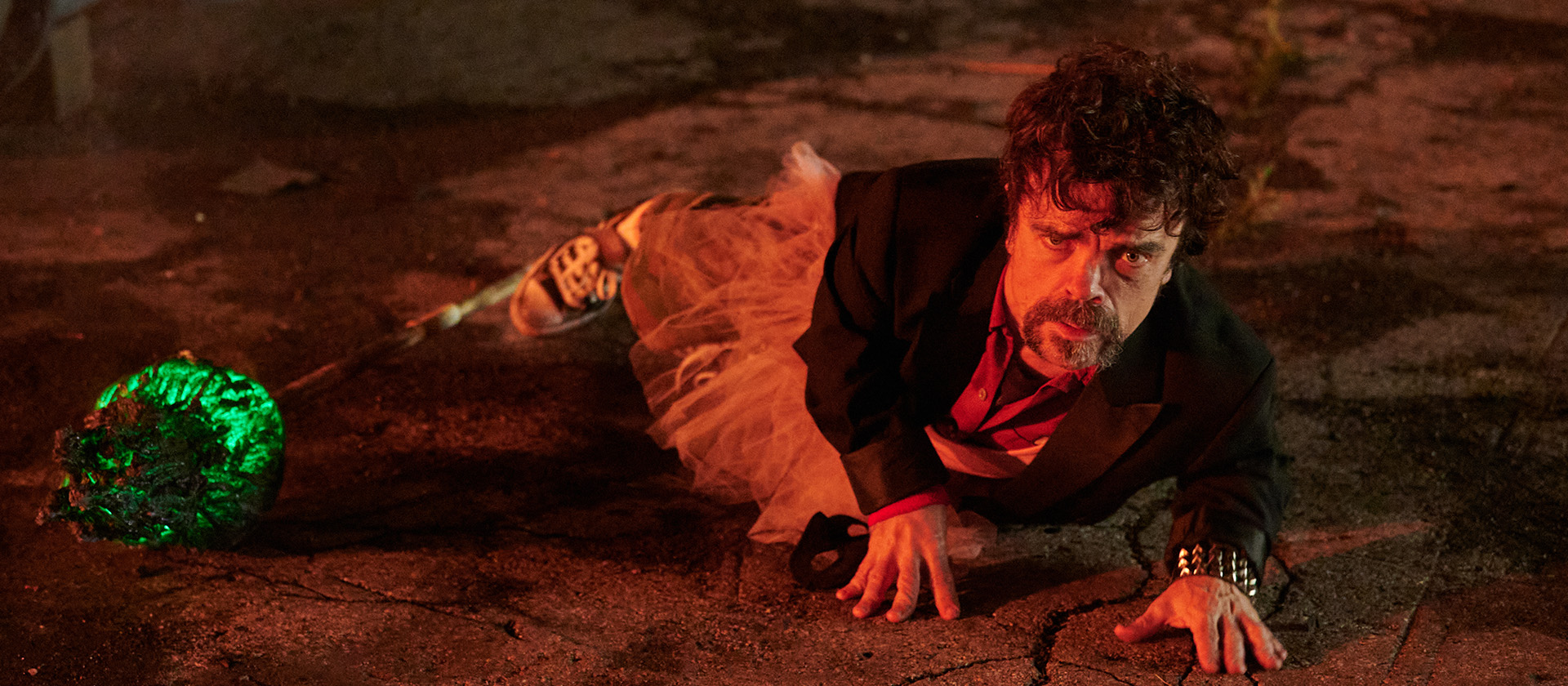
“You know, it’s very cartoonish, but he manages to anchor that with what I kind of think of as a very human performance in a very brief amount of time at the top of the movie.”
As Blair puts it, Dinklage can split the difference between participating in the ridiculousness of it, but also being very honest and very real with it, even when the circumstances are totally silly.
Talking about the importance of an emotional investment as a foundation might seem a bit odd with a film like this, but Blair draws an interesting comparison. “A movie that I referenced a lot when we were talking about making this to the crew and everything was Airplane!,” he says. “I really wanted it to work as a comedy, first and foremost, an Airplane!.”
As he notes, a lot of people remember that for having 10 jokes a minute (“and rightly so”). “But if you think about it, what holds that movie together is you’re scared that they’re not gonna be able to land the plane,” Blair says. “And, you want the leads to get together. It has this actual emotional story to it that all the jokes are kind of hung upon.” The filmmaker thought if they could do their own version of that, with something that the audience is emotionally connected to, then they could kind of do any joke they wanted to and it would be okay.
Blair has praise for Dinklage’s castmates, too, all of whom he says brought their own thing to it, and operated at different RPMs: “Taylour [Paige] was very deadpan and very dry, and Kevin [Bacon] was very theatrical and kind of overheated, and Elijah [Wood] is very strange.” There was something nice, he tells me, about seeing everyone doing their own style, and it all being able to come together.
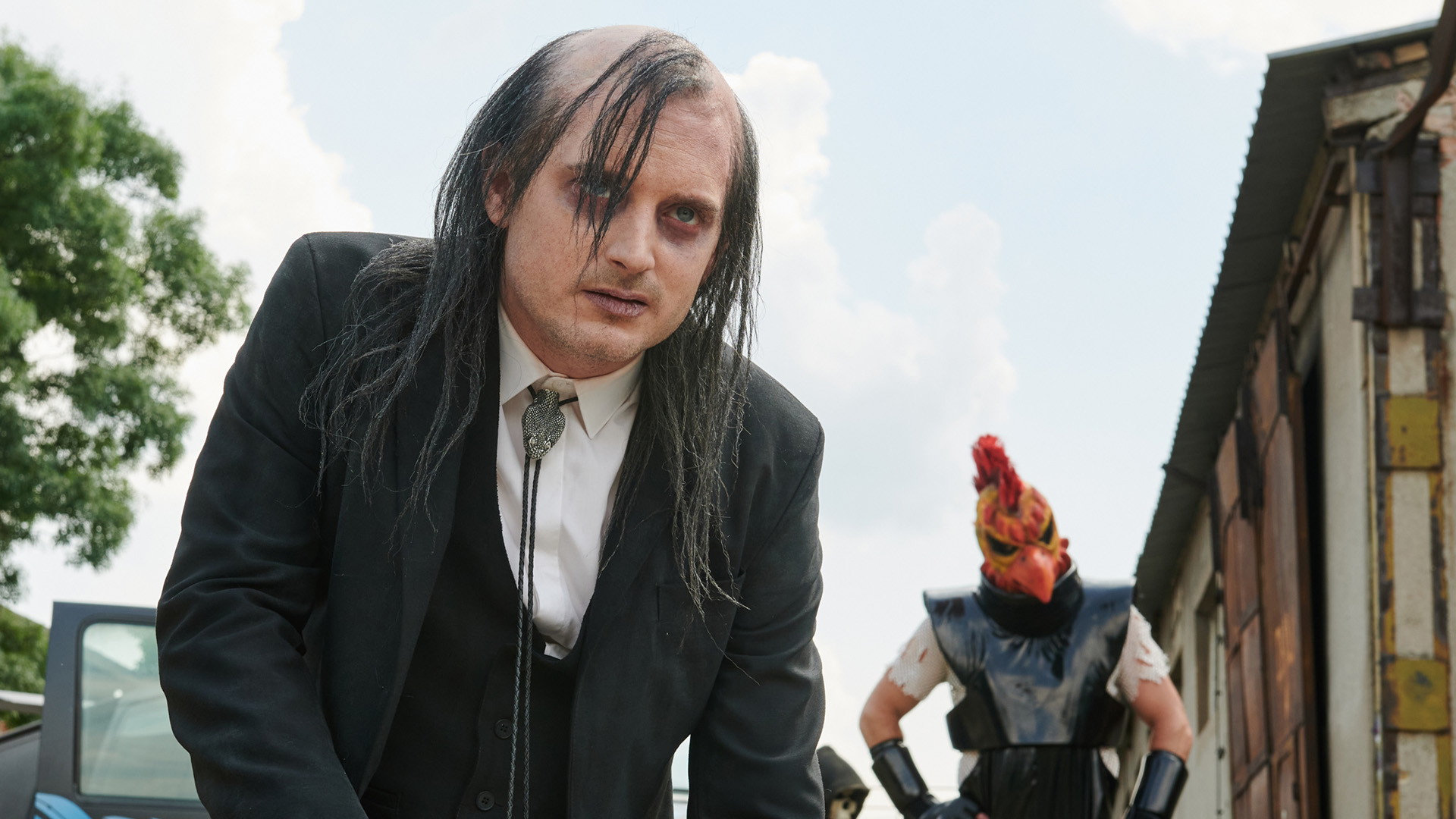
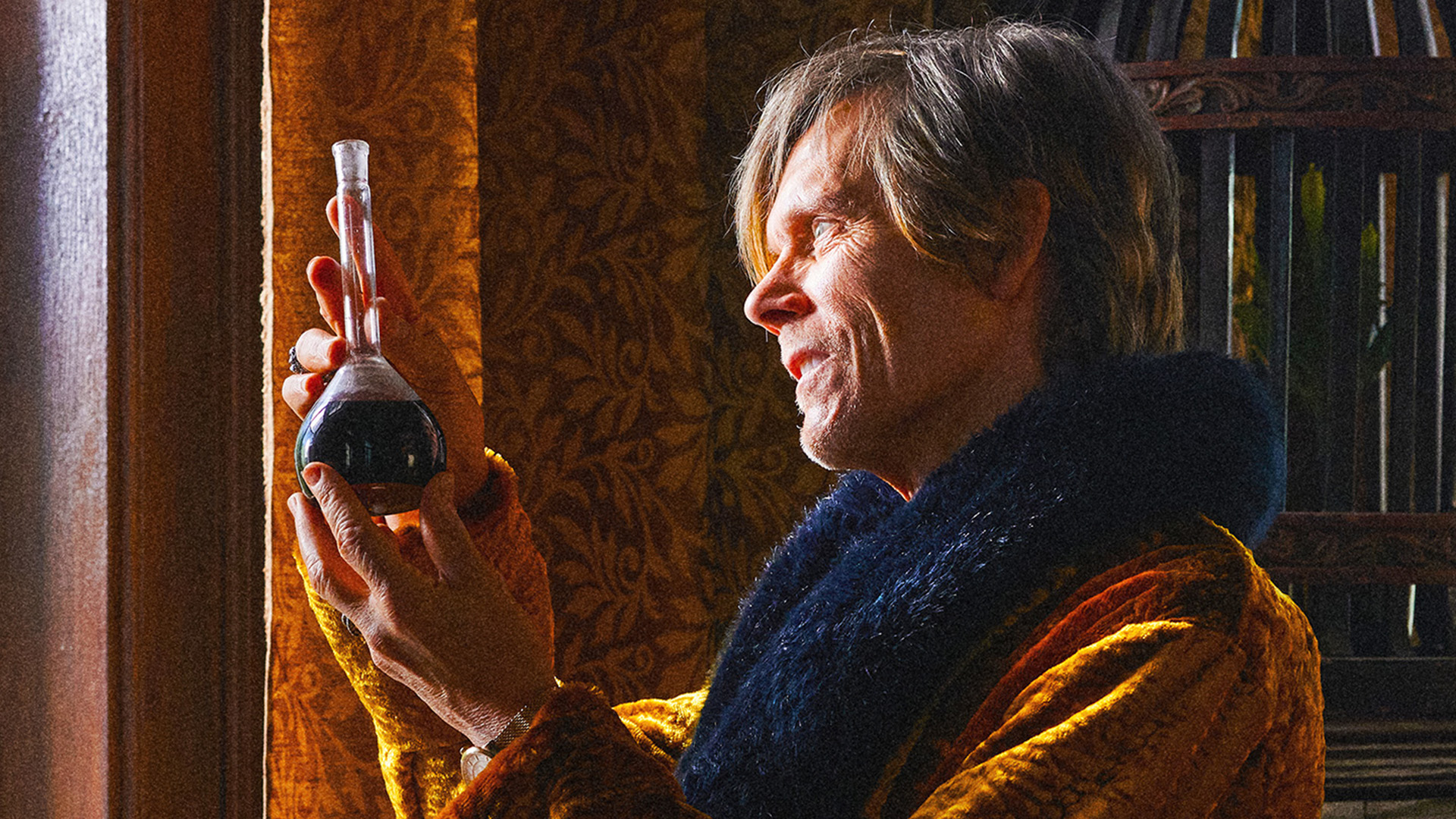
Also in the cast, in what was a wonderful surprise to me, is Julia Davis. Blair shares my fandom for the UK comedy genius (“I was really, really obsessed with Nighty Night when it came out.”) and explains that as soon as his producer suggested her, he didn’t want to talk about anyone else. “I was just like, we have to get Julia from Nighty Night,” Blair recalls.
“She was very kind, but she took a little bit of convincing,” he continues. “I think it was because she wanted to be very careful with her performance and make sure that she could add something to the movie.” Blair says he wanted to assure Davis that she would, and that there’d be room for improvisation and trying different things.
“The next thing I know—and I still have it on my phone, it’s my favourite thing—is this incredibly long voice memo of her,” Blair tells me with glee. “Her question was ‘what accent do you think this character has?’ And I hadn’t thought about that. And I was like, ‘Well, I don’t know. Let’s think about it.’ That’s all I said.”
“Within about an hour, I had this voice memo that was probably twenty minutes long of her reading her lines, but in like 25 different accents. She was New Zealand, Australia, France, British Cockney, posh British… It just goes on and on and on. And it was the lines, and then it was her just going off and talking and, like, making stuff up. It feels like it’s a dozen characters on this one voice memo that I keep on my phone to this day.”
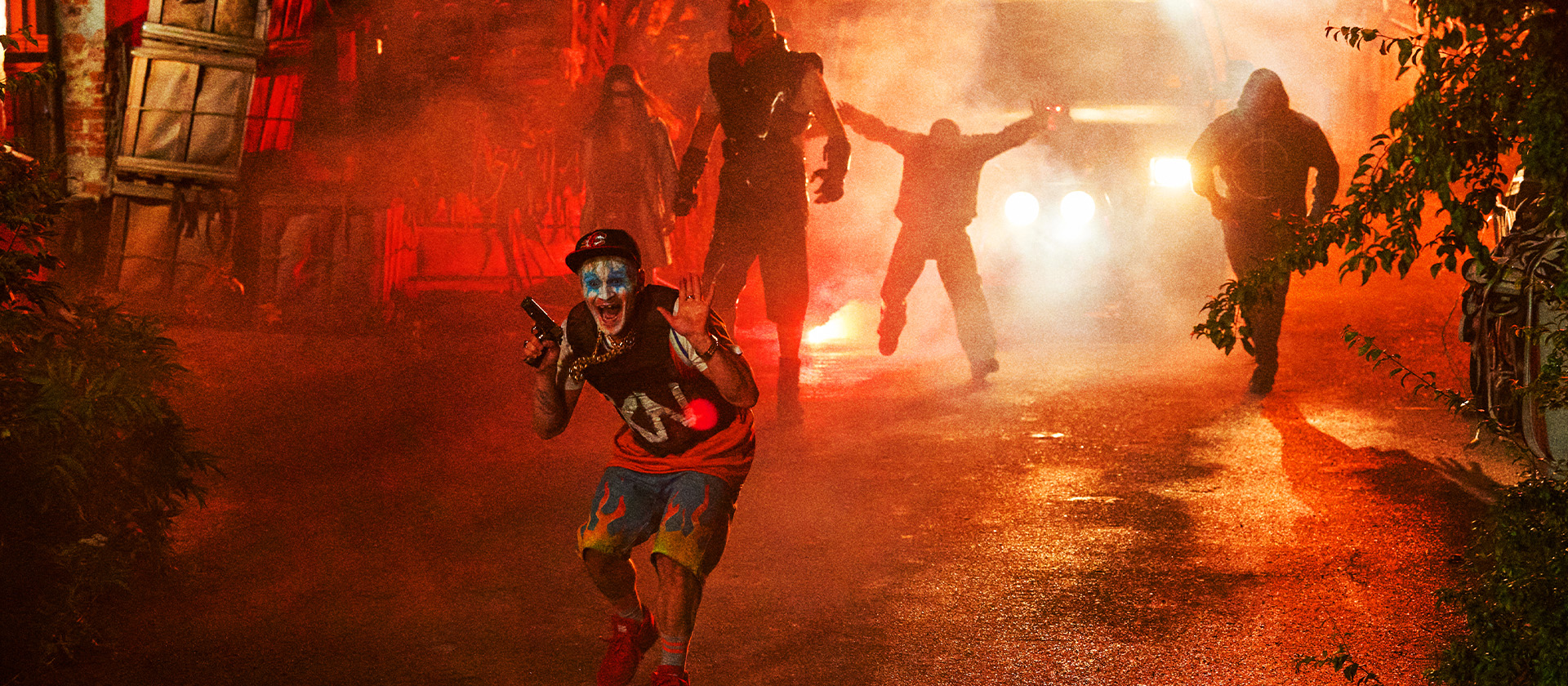
This day… this fucked up, present day that’s terrifying for many Americans…
The US is a shitshow, is how I put it to Blair. After a delay in the film’s release, I speculate whether one side effect of that timing is that The Toxic Avenger is coming out at a really, really good time for our cynicism about corporations, for the sort of power dynamics between the rich and powerful and the working class. What’s happening in the background isn’t good in any way. But does Blair feel we’re a bit more receptive to some of the film?
“I’ll be perfectly honest with you, dude, maybe?” he says. “I guess that’s cool? I would vastly prefer for it to be totally out of sync with current events and not land with people, than have to contend with what we are contending with. I don’t give a fuck about a movie. At the end of the day, this is a very dangerous, scary situation in our country.”
“Now, I wrote it six years ago, and so I didn’t know necessarily that it was going to feel timely. I was writing it just in a sort of a universal way. I think the idea that rich and powerful people can make life more difficult for the underclass is not necessarily a contemporary thing. It’s an all time thing, and so that would have been timely had it come out twenty years ago, or a hundred years ago, or whenever.”
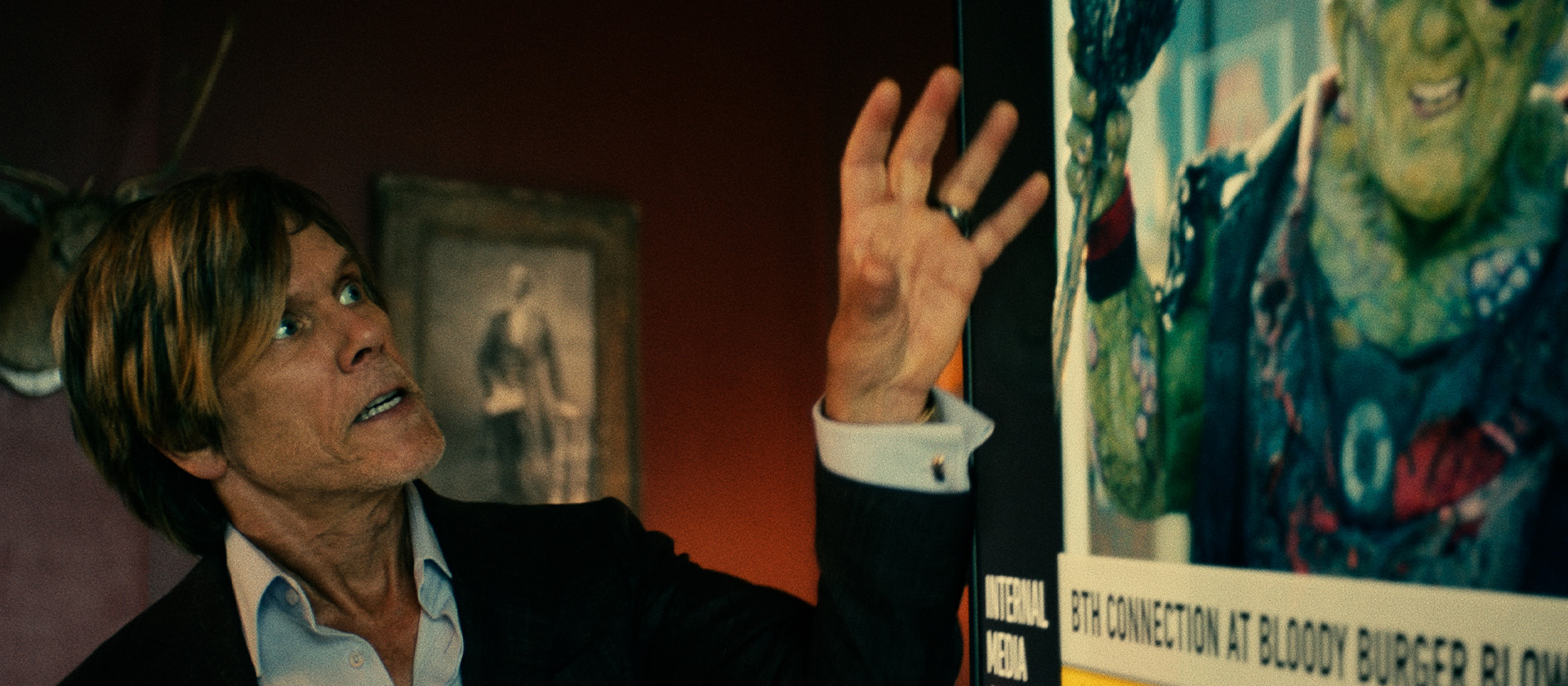
“Unfortunately, maybe it’s very timely. Now, I don’t take a ton of pleasure in that, necessarily, but I wasn’t writing it to be like, ‘let’s comment on a particular thing’. I wanted to create the most substantial possible villain for an underdog to have to contend with. And to me, that was more of a systemic thing than like a creature with powers. We do the creature with powers thing, of course, because that’s fun to watch, but the thing that Winston [Dinklage] is fighting against is more of a monolith, and that was just a dramatic choice. It was not meant to comment on anything, and the fact that it is so timely breaks my heart.”
“Honestly, dude, it’s hard to kind of like, tiptoe around and be like, ‘let’s talk about a movie’ when we’re fucking building concentration camps. Like, it’s fucking insane. And I’m thrilled that the movie is coming out, and I’m thrilled that people’s hard work is getting celebrated.”
“And at the same time, it is also true that there is a disconnect—like, you look out your window and this is what’s going on. It’s a very strange time, and you know, beyond that, if this movie is a good time for people at the theatres, then that would be the best possible outcome. But it’s certainly not anything that’s meant to prescribe a solution or dissect a problem, because it’s a fantasy movie about a guy with a mop.”
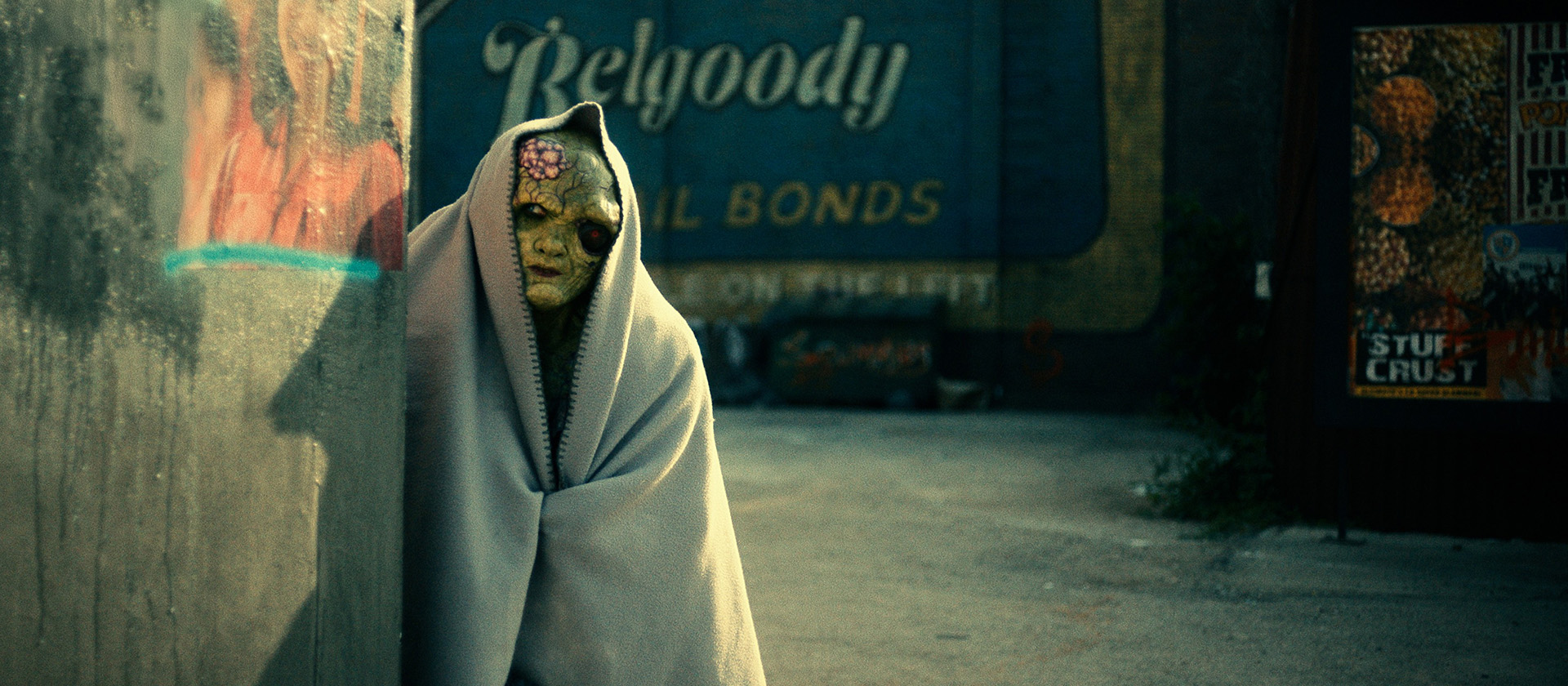
Thinking back to the 80s, and the original film, with the environmental protections of the time, it was very easy to picture a whole bunch of toxic waste barrels sitting on a lake. Setting aside totalitarian fascism, are we back at a time where it’s a lot easier to imagine a bunch of barrels sitting in a lake?
“Yeah, that’s low hanging fruit,” Blair replies. “No one’s going to argue with that. Like, yeah, nobody wants barrels of sludge in a lake. And so that was a visual that felt important to carry over from the original movie. But the larger stuff about the way unrestrained corporations treat people, that’s a separate thing. And it’s, it’s unfortunate that maybe it does feel timely, but that was not intentional I would say.”
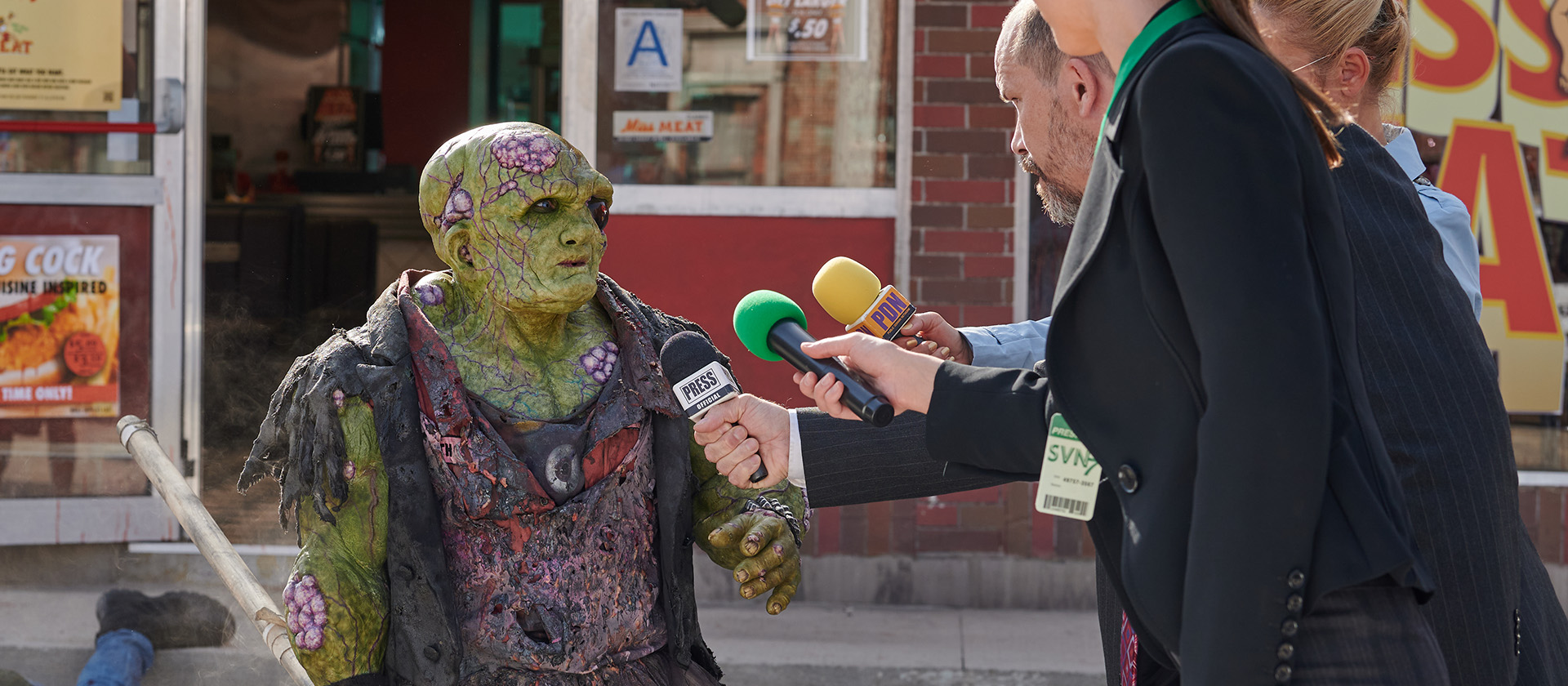
Before we wrap up, I feel the need to turn our conversation to something more positive and joyous—like the pleasures of ripping people’s arms off onscreen, of blood sprays and practical effects. What was it like for Blair to get to play with some of those techniques?
“It was a return to being a kid again,” Blair enthuses. “I texted my best friend, Jeremy [director Jeremy Saulnier] who I grew up making those movies with on videotape. Long before we were figuring out, you know, editing or stories or anything like that, we were trying to figure out how to do makeup and how to do squibs and stunts and stuff like that.”
That’s really what attracted them to the movies, he says—to get to do this was kind of like being a kid in a candy shop. At a certain point, after directing what they wanted to see, Blair got to step back and just watch it unfold. ”It’s very, very satisfying—from a craft and a technical standpoint—to watch that kind of stuff come together on set. You know, it’s like playing with toys. It’s delightful.”
THIS INTERVIEW HAS BEEN EDITED FOR LENGTH AND CLARITY









